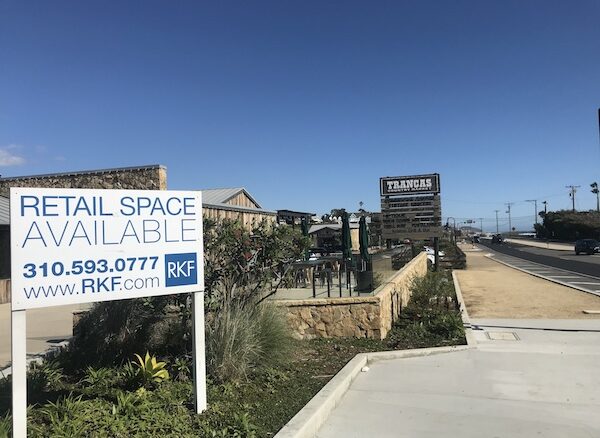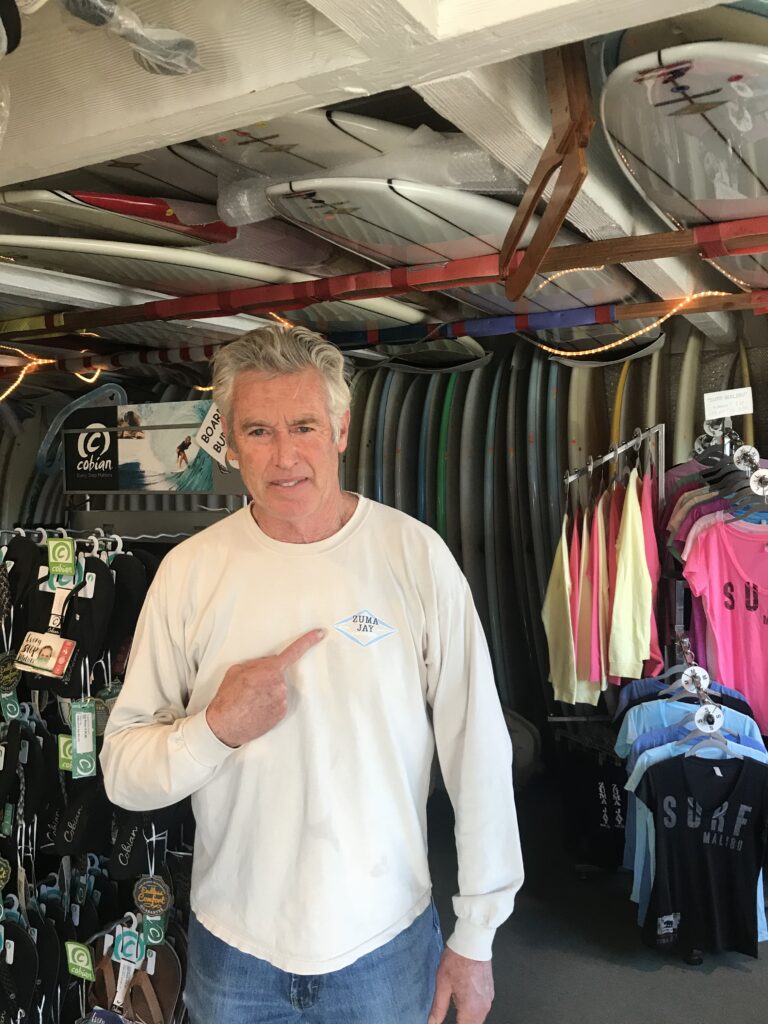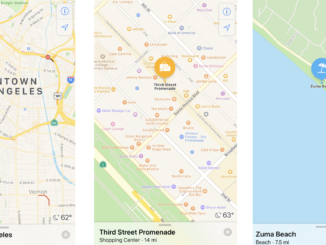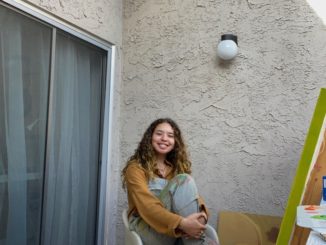
Malibu’s business landscape is changing and it is becoming increasingly difficult for local businesses to adapt.
Following a decades-long battle to prevent chain retailers from taking over Malibu, preservation advocates and developers reached a compromise, according to the Malibu Times. The new ordinance evolved from Measure R, a now-infamous proposal that cost the city over $200,000 in legal battles.
The new deal prevents the introduction of retail establishments that have 10 or more worldwide locations that have a standardized array of merchandise, color scheme, decor, façade, layout or signage. On the other hand, eligible retailers will be allowed up to 4,000 square feet, an increase from the original ordinance.
The Malibu City Council adopted the ordinance Feb.26. The law will take effect June 1, according to malibucity.org.
The Malibu Times claimed this was a victory for those who want to restrict big retail but local residents and businesses remain unsettled.
“Seventy percent of the family-owned businesses that I grew up with have been taken over by large corporations,” lifelong resident and real estate agent Shelley Yrigoyen said. “If our businesses get driven out, then we lose a big part of our culture.”
In addition to these new legal changes, local businesses face a number of intertwined challenges, including rent prices, an evolving marketplace, online competition, weather, government red tape and an ever-changing, volatile global landscape.
Rent prices
The biggest threat to local businesses in Malibu is the steady increase in rent prices of storefronts, said Jay Wagner, a Malibu city council member who has operated Zuma Jay’s surf shop across from the Malibu Pier for the last 35 years.
Yrigoyen said that in the past five years, some retail spaces have seen year-to-year rent inflation in the range of 10 to 15 percent. Compare that with Los Angeles’ Gross Domestic Product, which grows about 3 percent annually, and it’s no wonder why businesses are struggling to keep up.
Wagner said large banks acquiring most of the retail spaces in the area are to blame for the dramatic price increases.
“The banks come in and demand higher returns on investment because of the risk involved with running a business here,” Wagner said. “These banks require 16 to 18 percent returns, and my businesses’ profit margin is only around 18 percent, so I’m just fighting for survival.”

Jonathan Burke, Pepperdine professor of managerial economics, said a rent increase is to be expected but the extent of that increase could prove harmful to the economy.
“If one or two players own the majority of properties, they can essentially have any price they choose and can replace tenants easily,” Burke said. “This helps the overall economy with revenue but it can be harmful to the people that live there.”
Burke said economists sometimes see markets or industries like Malibu’s outrun themselves.
“Demand for these spaces is high, so we can expect prices to increase but what we have here is new development alongside widespread price increases,” Burke said. “We’re left with a lot of empty spaces that few businesses can afford.
An evolving marketplace
Construction of “The Park at Cross Creek,” a massive, 25,000-square-foot retail space near the intersection of Civic Center Way and Cross Creek Road that is set to be the site of a Whole Foods, is a looming reminder to the local businesses of Malibu that their products and services may soon become obsolete.

A Pepp Post survey of 51 students showed that 67 percent wish Malibu had more chain stores and that most students visit only Ralphs on a weekly basis. Only 26 percent agreed with the statement “I can find any product or service that I need in the businesses of Malibu.”
Yrigoyen said the threat of large chain stores providing a “one-stop shop” for visitors would eliminate the appeal for Malibu’s unique and whimsical shopping experience.
Zarik Boghossian, professor of entrepreneurship and decision sciences, agreed to an extent. “For the most part, it will make it more difficult (for local businesses),” he said. “There are higher barriers to entry and higher capital requirements to set up shop and operate.”
But Boghossian also said the unique nature of Malibu’s economy means there will always be demand for niche businesses.
“Malibu is a melting pot with a lot of culture, and culture is what makes new ideas,” Boghossian said. “When these companies go into a small market, it gives the people an opportunity to stand out and be creative … if an economy like Malibu only thinks of itself retrospectively, there is no way that it can progress.”
Lenise Soren, recently elected chairwoman of the Malibu Chamber of Commerce, is a prime example of how small business owners achieve success in Malibu through creativity and community. She owns Sorenity Rocks, a luxury art gallery and event venue located in the Malibu Lumber Yard. She is opening a new Point Dume location in May.
She believes that when it comes to big business and local business in Malibu, the art is finding the balance.
“This is a business, so we need our Starbucks and our Whole Foods as anchors to be able to ensure traffic for our small mom-and-pop business. I think there needs to be a middle ground,” Soren said. “I’ve been speaking with some of the new development projects and they’ve been very vocal of how they want to work with the Chamber of Commerce in creating great tenants that the community will like and will want.”

For some non-local businesses, the attraction to Malibu’s diverse market is too great to ignore. Such is the case for Caffe Luxxe, the first tenant in the newly renovated “Malibu Sands” shopping center on Pacific Coast Highway near Carbon Beach.
“Our owner, Mark Wain, chose this spot because of how many people drive by everyday, it’s somewhere around 44,000 per day,” Manager Kyle Harper said. “Malibu is a great place to improve your business’ image because of how many people from different areas pass through and because of the social media presence. It helps boost the recognition of Luxxe’s other cafes throughout LA.”
Kat McGee, ambassador at Lululemon in Malibu Country Mart, advocated for the freedom of businesses to expand to areas that need their goods or services.
“Malibu’s a creative and trendy market and there will always be demand for new ideas,” McGee said.
Online shopping
The rise of online shopping has also had a considerable effect on some of the retail storefronts in Malibu. Wagner said customers no longer go into his shop looking to buy but to try on his inventory with the intent of buying online.
“If I see something that I sell go up online, I immediately stop ordering it. There’s just no way to compete with that,” Wagner said. “I try to sell things you can’t find anywhere else and provide a service that can’t be matched. I shape my own surfboards, I press my own T-shirts and sweatshirts, and I give local discounts.”
The survey showed that 52 percent of students prefer shopping online versus at Malibu retailers, whereas 25 percent disagree.
The survey showed that 52 percent of students prefer shopping online versus at Malibu retailers, whereas 25 percent disagree.
Weather
Every year, millions flock to Malibu from the Inland Empire to enjoy warm weather on pristine beaches. But as temperatures drop, so do the revenues of Malibu businesses.
“In the winter of 2017 we had the worst quarter since we started business because of the rain,” said Jimmy Chavez, general manager at Duke’s Malibu, an oceanfront restaurant. “I remember one Friday night in February when we only had two couples come in and we closed the restaurant at 8 o’clock.”
The seasonality of Malibu forces businesses to have fluctuations in their employment. Malibu Burger Co. Manager Graham Irons said the restaurant doubles its payroll in the summer and is forced to let go of most of the employees when the school year rolls around.
“A lot of our costs are wages and training, especially with minimum wages going up every year,” Irons said.
Grievances with City Hall
Yrigoyen said many Malibu locals believe that the city overlooks some businesses’ actions and give them preferential treatment.
City council member Wagner agreed, to an extent.
“City council does its best to enforce the regulations but some businesses are able to sidestep through loopholes or threatening to sue,” Wagner said. “One example is Nobu. Their permit had a provision where their employees had to park off of the PCH but they haven’t followed it.”
Some new businesses think that Malibu’s regulations are far too strict and that their business suffers because of it.
Irons said Malibu Burger Co., which opened in July 2017, took two and a half years to open because of red tape.
“Whenever you start a business, you don’t expect to see profit for at least a year,” Irons said, “but it is especially hard in Malibu because they require a lot of permits, they take a while to get approved, that ends up costing us. We had to open with higher menu prices just to cover those costs.”
Soren said the Chamber of Commerce is working to help local businesses thrive.
“We’re creating better benefits for the members of the chamber, Soren said. We have different programming centered around creating community and business help and advice, mixing people, like a matchmaking service but for business.”
Pepperdine students and Malibu businesses
In the survey, 88 percent of students agreed or strongly agreed that businesses in Malibu are too expensive for the average college student.
“I think that if more restaurants and shops offered better deals for Pepperdine students, we would go more often,” junior business major Catie Lehman said.
Some businesses believe that Pepperdine students help their businesses in the slow winter months.
“Since we lowered the prices for Taco Tuesday, we’ve seen a lot of Pepperdine kids coming in every week,” Chavez said.
Lehman said there are many cool shops and restaurants in Malibu, but she rarely goes out because of how expensive they are.
“Me and my friends love Malibu but we don’t ever leave campus ‘cause everything is expensive,” Lehman said. “My sister goes to UC Davis, and their meal program lets you go out to restaurants in the town and pay with meal points. Some Malibu places should do that, like take meal points and in return Pepperdine can advertise the businesses to parents.”
Alex Rose completed the reporting for this story under the supervision of Dr. Christina Littlefield and Dr. Theresa de los Santos in Jour 241 in spring 2018. Dr. Littlefield supervised the web story.




